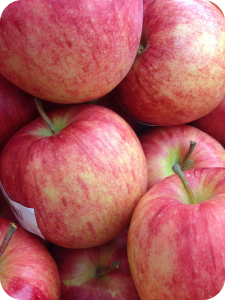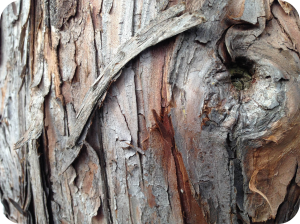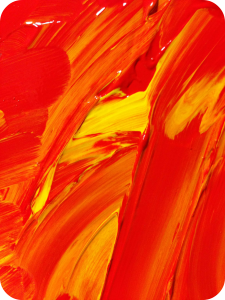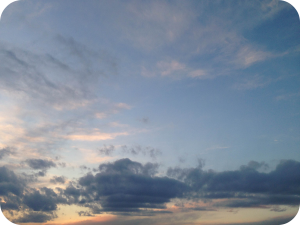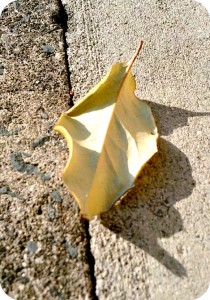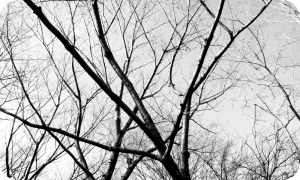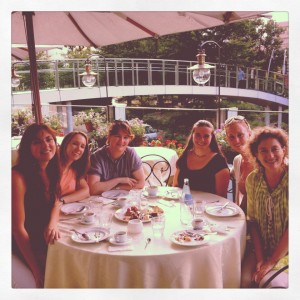Archive for January 2013 | Monthly archive page
This shouldn’t be such a big deal. Why does it feel like a big deal?
You fish in your bag, checking for your keys. Still there. Wallet too. It’s okay. Everything’s okay.
It’s mid-morning in grimy, glittering, early-summer Chicago, and you’re alone in the world. Or, at least, alone on your way to the grocery store.
There’ve been so many firsts these last few weeks. First time moving to a city, first time living away from home or the insulated world of your small college, first time looking for a job with no connections whatsoever. And now this: your first time going to a grocery store by yourself. Somehow this is the most intimidating task yet. In some deep and undeniable way, it signifies an ability to take care of yourself. It means you’re one step closer to full adulthood and its attendant weights and responsibilities.
As ridiculous as it seems to you, you’re awash in anxiety, unsure you can do this. And yet you push onward, your stride purposeful, careful to arrange a look of assurance about you.
As you step through the automatic doors of the grocery store, your mood lifts somewhat at the sight of the vivid colors spilling out from the florist’s corner. The frigid air of the produce section is startling and you pull your hands to your upper arms, rubbing your skin to bring yourself some warmth, indulging in a secret half-hug.
Then, approaching a stack of apples, you suddenly realize that you’re not choosing for anyone but yourself. You can have exactly the apples you like. As you walk around collecting items in your basket, the fear that’s been squeezing your stomach begins to relax its grasp.
It’s just a grocery store, after all. In fact, browsing around, choosing carefully, thinking about the meals you might eat–it’s all kind of fun. Exhilarating, even. There’s a power in it, an enjoyment. This is your morning, your day, and you’re making decisions with it. Decisions that will affect your future, if only the future of your meals. Is this what it feels like to be an actual grown-up, driving your own life?
Walking home, you find that your step has a natural power to it; you’re not putting it on. Something has shifted back there amid those stacks of cans and boxes, between the pyramids of produce. You carry the grocery bags with a sense of assurance, one on each arm. This is a thing you can do.
After dark you visit the outdoor pool of the building where you’re staying. Completely alone, you slip into the water, savoring the freedom your body finds there, relishing the sensation of warm air on wet skin. Finally you let yourself come to rest on your back, floating weightlessly and studying all the lights surrounding you: those of the city, those of the sky. The moon’s lifted up high tonight, partial but luminous, far above any of the skyscrapers and incomparably beautiful.
It’s okay. Everything really is okay.
The gifts of the senses are easily taken for granted. Surrounded as we are by constant stimulation, we forget to pay attention, to notice, to appreciate what we experience.
Bombarded by sound, we shut down to the ordinary noises we hear–a TV nattering in the background, the ocean-mimicking whooshing of passing traffic. Casually, we overlook sights that would have arrested and enthralled any of our ancestors just a few generations back–a man walking down the sidewalk talking on the phone, a woman casually flicking through a magazine on her iPad as she waits for the bus. Common miracles.
Passing a corner restaurant, we catch the scents of foods we didn’t know as children. We taste combinations of flavors never before considered possible that now seem run of the mill.
And our whole world has been smoothed over. Not just the pavement laid down nearly everywhere we care to go, but the very surfaces we touch on a day-to-day basis are more often than not smooth and uninteresting to the touch. Fleece jackets, credit cards, smartphone screens–so much of what we place our hands on is designed to feel as delightful–or unnoticeable–as possible.
But sometimes the animal self perks up, senses alert. Like when we go out into the day just after a rain. Maybe there’s the smell of dirt, wet and invigorated. Or the sound of a bird calling out as it passes overhead. The sight of high tree branches rustling in the post-rain wind, the feel of the newly-visible sun on exposed skin. All the world awake again.
These things are often present, of course, but we forget. We forget because we perceive so much all the time that it’s hard to keep perceiving. We’re overwhelmed, overloaded. We have to back away, to shut down a bit, to dull ourselves, so that it all doesn’t become too much.
We’re just animals, after all. Miracles of blood and bone that can only change so quickly. We startle, we tire, we grow hungry. All the effort put into smoothing out the world around us can’t shift the essential animal nature of each of our bodies, or its needs.
To seek out textures sometimes, to find the things we love to sense, is an adventure worth having. What do you sense that moves you in some way? Can you let these experiences in? What’s it like to sense, to truly experience what’s there? What’s worth knowing, worth remembering, worth integrating on the ride of this human life?
What happens if you turn on some music and dance exactly the way you want to? Or if you scoop up paint with your fingers and smear it on a canvas? If you try cooking a favorite recipe of your grandmother’s? If you run your hand over the bark of a tree trunk? If you stop and listen–really, actually listen–to the person speaking to you?
What happens then? Is it smooth? Bumpy? Scary? Exhilarating? What happens then?
September, 2012
Tokyo, Japan
Kneeling on the floor blindfolded, I reach out with my right hand, searching. I have a sense of the general area of what I’m looking for, but can’t quite locate it. My hands grope in the air, sightlessly seeking.
And then a finger touches the smooth wetness of paint glopped onto my palette. Ah!
I smile, dipping the fingertips of both hands into the unseen colors, savoring their coolness. I lift my fingers, the paint clinging to them, and reach each hand out to either side of me, putting them down onto the rough white canvases waiting there.
I can picture the blank surfaces in my mind’s eye, imagine them being smeared with the reds, yellows and oranges coming off my fingertips, but not knowing for sure what they look like is exhilarating.
The beat of the music picks up and with it I dip my hands to the palette again, this time mixing the colors by gently rubbing my fingertips together. I put my hands to the canvases, moving with the beat, letting the music inform my every gesture, letting it become part of the painting.
Leaning again to the palette, I pull up more paint, scooping with my fingers and delighting in the sensation. Again I reach down to the canvases, body rocking, hands echoing the movement of the rest of my body, my fingers the very focus of the dance.
What’s happening underneath them? My only perception of the paint is through the touch of my skin, and in the unfamiliarity of this way of knowing I’m swept into a joyous reverie. I don’t know exactly what’s happening and I love it; I can’t see what kind of marks I’m making and I don’t care. I only want it to keep going, only want to keep living this feeling, keep experiencing this interlocked dance of body, paint and music.
The sensitive tips of my fingers are starting to become slightly bothered by the uniform bumps of the canvas, their subtle roughness more and more apparent as I continue to touch them.
Undeterred, I move my hands to the paint again, this time meeting my palms in front of my chest, feeling the paint warm with my touch. I wonder what color they are now, my hands. The urge to peek at what’s happening suddenly becomes nearly too much to resist, and yet I know that looking would somehow break the spell of this moment, and so hold back.
When a break comes in the music I find a natural pause too and lift my forearm to my face, pushing the blindfold from my eyes. To my right and to my left lie two paint be-smudged canvases, lively and glowing. Their frenetic energy pops out at me, a visual representation of the joyous wave I just rode.
They’re just finger paintings, yet caught in them is something else too. Dynamism, motion, energy. The pure bodily enjoyment of movement and touch.
You might as well know the truth: meditation always sort of scared me. There was the stillness and the silence and then the thoughts. All those thoughts that would roil up and ask to be looked at, ask to be seen.
What I didn’t get–the fundamental misunderstanding I brought to meditation–is that the practice is not to quiet the thoughts or make them disappear. The practice is to recognize them, thank them, and let them go at their own pace.
What the monks on Mount Koya may have known that I didn’t is that the thoughts running through our minds are not who we are. We are not those thoughts, but the observers of them. The thoughts themselves pass like clouds in an otherwise clear sky, and the observer remains there, watching.
The clouds simply are. Just as we don’t judge clouds as good or bad, right or wrong, the practice of meditation asks us to treat our thoughts in much the same way. The thoughts that float or skip or tumble into our minds are a part of our humanity, part of our animal selves, and they serve many very important purposes. But they’re not who we are.
Through meditation, we can connect with the true essence of ourselves–that observer–and watch the thoughts do their thing. The more we do this, the easier it becomes to recognize the reality of the situation: that the thoughts are simply thoughts. There’s no need to give them any power, any credence.
And therefore there’s no need to resist them. It doesn’t actually matter much whether they seem to us to fall into the broad categories of positive or negative. They will pass. It’s the resistance of them that causes pain.
So this is something else those peaceful-looking monks may have thoroughly integrated that I had not yet even considered: that all our thoughts and feelings are here to be seen. That’s all they really want. Our fear is that if we stop to look at them, they’ll suck us into some black hole of pain from which we’ll never emerge.
But really they’re just messages to us, here to serve us. Our fear asks us to look inward, our anger teaches us to look at our boundaries, our sadness shows us how to release. They’re beautiful and vital messages from our innermost selves, and they’re here to help. Even the “negative” ones, the scary ones. Sometimes especially those.
When we resist thoughts and feelings, it’s like trying to escape from a Chinese finger trap by pulling hard in opposite directions. Not only does it prevent the ends we have in mind, but it leads to frustration and even mild panic. It’s only when we relax our fingers and push them inward–when we give the thoughts and feelings the attention they need and then let them pass on their way–that we become free. Completely free to relax back into the wholeness of who we really are.
May, 2003
Mount Koya, Japan
I hate this. I fucking hate this.
The thought curled up into my consciousness like a coil of smoke from the incense burning on the dais. The monks leading our meditation practice sat silent, as did everyone else. My thoughts were the loudest things in all existence.
Sitting back on my heels, a position called seiza in Japanese, my legs had already lost all sensation. As unobtrusively as possible, I wiggled myself back and forth. It helped momentarily, but then the tingling deepened, expanded, painfully filling my experience so no other thought could enter.
Opening one eye, I snuck a look at the friend I’d come with. She was sitting in seiza with seemingly effortless ease, breathing deeply, her stomach expanding and contracting with a naturalness I envied.
I’m not supposed to be here. I’m not cut out for this.
It’s not that I’d planned to be there. Having arrived in Japan less than a month earlier, I hadn’t made any plans for the holiday week that straddles the end of April and beginning of May. When my coworker mentioned the trip she was taking to Mount Koya, I’d asked if she minded me tagging along. She’d seemed happy to have a companion, and I’d been thrilled with the trip up to that point.
But somehow, sitting there trying to keep completely still, I felt that everything about the situation was wrong. I wanted to get up and run, twirl, kick, move. Feel my body. Shout. Scream, even, just to feel anything at all.
How much longer?
We’d trundled up there in a very old train, only a few cars long. It’d been charming and beautiful, climbing the mountain that way, watching the towns and villages pass by with their tiled roofs and hilly streets. As we’d climbed it’d gotten colder and colder until, at the very top, the weather was almost winter-like even as spring had fully descended at the mountain’s base.
Upon our arrival, a kindly monk had led us to our small tatami room with a sliding door, two futons stacked on the floor, and a kotatsu, the room’s only heating source. Before dawn the next morning, the same monk had come to get us for meditation practice. Following him along the path tracing the rock garden, I’d been excited to experience sitting in meditation. But the sitting itself felt interminable, unbearable, physically impossible.
What’s wrong with me? I can’t even meditate for half an hour. I suck in every way.
The taunting of my mind was far more painful than the experience in my body. Comparing, complaining, worrying, wondering, my mind mocked me ceaselessly, telling me how bad I was, how stupid. How I’d never be right. How everything I was doing was wrong.
I cracked open my eyes again to surreptitiously study the faces of the monks sitting in front of us, peace saturating their features. What was it they were experiencing? And could I ever find it too?
We all have these moments sometimes, don’t we? Fleeting, maybe, and rare, but we all have these moments of suddenly noticing the fact that we’re alive. After days or weeks, months or years of having all but forgotten, there’s a jolt of recognition and there we are, electrified with the awareness that all of life is pulsing around us. That the moment where we stand is the only moment, and that in that moment everything is connected to everything else.
They often show up when we’re caught off guard, these moments, when something unexpected happens or when for one reason or another we find ourselves acutely noticing our surroundings. When beauty catches us unawares and suddenly we expand into it, tiny energy-fine tendrils of ourselves keenly aware that they exist in a vast, infinite network of tendrils that all live and beat and breathe together. This is the deepest truth of what we know at a visceral, cellular level. That we are alive, that we are aware, that we are all connected to each and every thing in existence in some achingly, powerfully beautiful way. And we feel it in a way that is incomparable to any other feeling.
And, if we pay attention, we notice that it is a feeling rather than a thought. It’s not brought about by logic, by careful dissection, by intense mental focus.
Let me be clear: I’m a big fan of logic and reason. They’ve brought us countless gifts, and they’re valuable beyond measure. But they’re only capable of accessing part of the world, and therefore part of the truth. When we restrict ourselves to operating solely within their realm, we close off vital ways of knowing that are just as valuable, just as interesting, just as compelling.
This is something that we do regularly in our culture, though; we shut down our bodies, shut down any way of knowing that isn’t rooted in logic. Many of us spend our days living in a mental world, disconnected from the awareness of our bodies and the parts of ourselves that don’t “make sense.” As we grow up we find it easier and easier to sort, to categorize, to believe that we have it all figured out. And when that’s the way we approach the world, our vision shrinks and narrows until our way of seeing the world is so cramped as to barely allow anything new to enter. When this happens we think we already know what we need to know, and anything that doesn’t fit into our worldview can be discarded as irrelevant, uninteresting, or just plain wrong.
But when the chance comes to take a step back, to re-enter the body and its moment-to-moment experience, fresh information is once again free to flow in, to bring us into the awareness of our whole selves–not limited to the selves of our minds. It’s all there in the ever loyal and patient body, accessible to us anytime we’re willing and able to feel for it.
Winter, 1986
Seven years old
Boots crunching through the fresh snow covering the backyard, I headed toward the woods, sunlight filtering down through the interlaced branches of the tall trees all around and up the hill. In the summer it would be shady here, only dappled light touching the ground through a roof of tremulous green. But now all was bare, and the sun reached down to touch most of the snow that had fallen the night before.
My brother and I had been out to play just that morning, but after lunch he’d stayed in the warmth of the house to watch TV while I’d felt the pull back outdoors.
My eye caught the plastic playhouse that had been there for several years and that we rarely used anymore. Its colors were faded by sun exposure, the decals puckered and starting to pull away. As I opened the small half-door I saw that only a bit of snow had drifted in, not enough to cover much.
The winter sunlight slanted in the window, reflecting brightly off the snow on the bank that sloped up just outside. I sat in the small plastic chair and looked out, gathering my arms to my body to keep warm. My breath puffed out in clouds and I played with them, making them bigger, smaller, bigger again, watching the clouds appear and disperse in the space of one exhalation.
My attention caught on the bare tree branches, the sun skimming off them in a way that made them shiny and reflective. The branches themselves were beautiful, naked as they were, locked together and coming apart with the breeze, a tangled web of dormant life. The way the sun fell on the perfectly fresh snow made it glitter, and there were colors in it dancing, almost twinkling, that I’d never before appreciated in snow. Flashes of green, pink, orange, blue, tiny crystals of color bounced their light over the early afternoon.
Stillness wrapped all around. I stopped to listen, trying to find anything familiar–a car, a TV, a human voice, the skittering of a squirrel. There was only the very slight rustle of the wind in the branches high above me.
And in that near-silence, a sense of deep and boundless peace overcame me. Everything–everything–shimmered and quivered with life. Everything had a current running through it, and it ran through me too. My body shivered, but not with cold–with recognition. With acknowledgement. With a feeling of seeing, of having been seen. With a feeling of knowing that I was part of all that was, that all that was was part of me. There were no words to it, no thoughts. Just feeling, just beauty.
I thought, I want to keep this, and that very second it began to fade, dissolving like a cloud of breath. Completely gone, as quickly as it had come, leaving a little girl sitting on a plastic chair in a plastic house, overcome with wonder and awe.
A few months ago on a hot, sun-saturated Tokyo afternoon, I found myself being led through the dining room of a beautiful Italian restaurant and out the open doors to the balcony. Just as we emerged and the waiter gestured to the table of foreign women I’d come to meet, an unexpected wave of nervousness overcome me. Most of us had only ever met online before, and suddenly on seeing all their faces I felt overwhelmed with awkwardness and a faint twinge of worry.
The feeling quickly ebbed, though, because as they each stood up to greet me it became clear that these were indeed the very same warm and engaging women I’d gotten to know online. Two hours, lots of food and several bottles of wine later, it was even clearer that we all had insights and perspectives that were incredibly valuable to one another, and that we were all more than happy to share.
We’re all women in Tokyo who do business online, and we now meet monthly to eat, talk, go over business ideas and support one another. Each of us has a different sort of business in the works, but the support we’re able to give one another is the real reason we all show up each month.
Joanna Byrne, a coach from Ireland, has been running a series of interview with each of us, and just recently my turn was up. Head on over to take a look, and check out Joanna’s work while you’re there. She’s a fantastic coach with lots of practical ideas for moving forward with the project or work you’d most like to do.
Photo courtesy of Jo Ebisujima, of My Organized Chaos.
Hi, and welcome!
I’ll be posting here every Friday with content related to my pieces in The 500-Word Project, which starts next Monday, January 7th. Watch this space for more insight into those, interviews, and musings.
Looking forward to seeing you back here soon.
